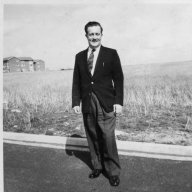-
Posts
75 -
Joined
-
Last visited
Content Type
Profiles
Forums
Gallery
Downloads
Blogs
Events
Store
Aircraft
Resources
Tutorials
Articles
Classifieds
Movies
Books
Community Map
Quizzes
Posts posted by TAA donaldson1
-
-
-
Nothing fake about this!
-
https://www.youtube.com/watch?v=5YG65xVlhf8
Taxiing around Blackpool Airport 13/032013.
The Beechcraft Super King Air family is part of a line of twin-turboprop aircraft produced by the Beech Aircraft Corporation (now the Beechcraft Division of Hawker Beechcraft).
-
https://www.youtube.com/watch?v=4obkkzLfIMk
Restored to flying condition in 2009.
G-AXNZ was built at the Shuttleworth Collection, and first flew in 1971, it is believed that she is the first Pitts to have been built and flown in the UK.
-
-
All filmed at Blackpool Airport summer June/July 2013
Bell 'Huey' UH1H Tail No 72-21509 G-UH1H
ZB679 Aerospatiale SA.341 B Gazelle AH.1
XZ196/T Westland Lynx AH7
https://www.youtube.com/watch?v=aCxpl3jhc0M
-
ZB679 Aerospatiale SA.341 B Gazelle AH.1
XZ196/T Westland Lynx AH7
https://www.youtube.com/watch?v=gu5wCsrzzts
-
https://www.youtube.com/watch?v=2DYZosgvnLQ
G-BWFM - A rare outing of this vintage aircraft.
The Yakovlev Yak-50 aerobatic aircraft is a single-seat all-metal low-wing monoplane with retractable main wheels and exposed tail wheel. The control surfaces are fabric-covered to save weight. The aircraft is not equipped with flaps.
The supercharged engine may be the Vedeneyev M14P (standard production line version), M14PF or M14R, producing between 360 and 450 hp and driving the propeller via a reduction gearbox. The landing gear, brakes and engine starter are operated by compressed air. Replenished by an engine-driven compressor, the main and emergency air bottles are contained within the forward fuselage between the firewall and fuel tanks.
The Yak-50 had exceptionally fine handling characteristics enhanced by a relatively high power-to-weight ratio. It has a tough and agile airframe - the type was twice World Aerobatic Champion. It was used as a military trainer by several countries.
Aircraft serving with the Soviet National Aerobatic team were typically scrapped after about 50 flight hours, due to the intense stresses imposed on the airframe during unlimited aerobatics. There were numerous cases of main spar failure; among its victims were the 1976 World Aerobatic Champion Viktor Letsko and many others.
Two modifications (Service Bulletin 61DA for S/N 0102-2007 and Service Bulletin 79 for S/N 1201-2806) were made to strengthen the wings spars for the extreme loads experienced during unlimited aerobatics; and no further failures occurred.
Other aircraft serving with DOSAAF were "officially" scrapped or placed into storage after they were superseded by the Yak-55 and Su-26.
It is these aircraft that form the bulk of airworthy "survivors" today. Only a few (approx. 90+) are airworthy and remain in private hands in Europe, the USA and Australia.
-
 1
1
-
-
https://www.youtube.com/watch?v=KikCbOBiTJU
Scottish Fisheries Protection Agency Reims-Cessna F406 Caravan II
G-SMMB c/n F407-0095. Built in 2008.
The Reims-Cessna F406 Caravan II is a twin turboprop aircraft manufactured and designed by Reims Aviation in cooperation with Cessna.
The Surmar is a new maritime surveillance version of the aircraft with extra equipment such as a 360 degree radar.
Data from Jane's All the World's Aircraft 1988-89
General characteristics
Crew: Two
Capacity: 12 passengers
Length: 11.89 m (39 ft 0 in)
Wingspan: 15.08 m (49 ft 5¾ in)
Height: 4.01 m (13 ft 2 in)
Wing area: 23.50 m2 (253 ft2)
Empty weight: 2,283 kg (5,033 lb)
Gross weight: 4,246 kg (9,360 lb)
Powerplant: 2 × Pratt & Whitney Canada PT6A-112 turboprop, 373 kW (500 hp) each
Performance
Maximum speed: 424[5] km/h (263 mph)
Cruising speed: 370 km/h (230 mph)
Range: 2,135[6] km (1,327 miles)
Service ceiling: 9,145 m (30,000 ft)
Rate of climb: 9.4 m/s (1,850 ft/min)
-
https://www.youtube.com/watch?v=sxl6SffgdK4
RAF Display team Typhoon, take-off, low passes and landing @ Blackpool Airport (filmed on a typical summers day in Blackpool, Lancashire.)
-
Eurofighter Typhoons from the RAF display team arriving at Blackpool airport from Coningsby for weekend displays at Carrickfregus and Whitehaven....
https://www.youtube.com/watch?v=HrqBrqusm5M
-
-
-
Check out my other Blackpool airport vids on Youtube https://www.youtube.com/user/donaldson1Blackpool ROCKS ! ;) -
Blackpool ROCKS ! ;)
Check out my other Blackpool airport vids on Youtube https://www.youtube.com/user/donaldson1Thanks for posting the videos of these 2 beautiful aircraft .. Blackpool Airport also has a special place in my heart being where I first experienced the joys of flying many years ago , so it's a double thanks from me .Dave C -
Nice close-up shots of the Air Ambulance landing in a field near to our local Hospitalhttps://www.youtube.com/watch?v=PyWmgsNl_CUhttps://www.youtube.com/watch?v=4raYqGGMfMc
-
-
-
Filmed back in January of this year on a freezing cold day!
-
Red Arrows due in at Blackpool Airport this Sunday 23rdThanks for posting the videos of these 2 beautiful aircraft .. Blackpool Airport also has a special place in my heart being where I first experienced the joys of flying many years ago , so it's a double thanks from me .Dave C -
-
Filmed at Blackpool Airport on the 25th May 2013 after taking part in the Battle of the Atlantic celebrations held in Liverpool over the Bank holiday weekend.
Spitfire PR Mk XIX PM631 was built at Reading too late to see service in World War Two. It is representative though of similar high altitude photographic reconnaissance Spitfires which did serve operationally. Spitfire PR XIXs were unarmed but could fly at 370mph at 40,000 feet (with pressurised cockpits) and had a range of 1,500 miles. PM631 was delivered to the RAF on 6 November 1945 but was stored until May 1949 when it was issued to 203 Advanced Flying School. Later, after being modified for meteorological work, she was flown by civilian pilots with the Temperature and Humidity Monitoring (THUM) Flight based at Hooton Park and Woodvale. The THUM Flight made daily ascents to 30,000ft to gather meteorological information.
On 11 July 1957, PM631 was flown to Biggin Hill from Duxford by World War Two fighter ace Group Captain Jamie Rankin DSO* DFC*,in formation with two other THUM Flight Mk XIX Spitfires, PS853 and PS915, to form the Historic Aircraft Flight which later developed into the BBMF.
The amazing performance of this ultimate mark of the Spitfire is demonstrated by the fact that the world altitude record for piston engine aircraft is still held today by a PR XIX. Flying out of Kai Tak, Hong Kong, in February 1952, Flight Lieutenant Ted Powles AFC climbed his Spitfire PR XIX to a recorded 51,550ft! These aircraft truly represents the 'top end' of piston-engine aircraft development and demonstrate the potential in Reginald Mitchell's original, brilliant Spitfire design.
LF363 was built at the Hawker factory at Langley near Slough. It first flew in January 1944 and is believed to be the last Hurricane to enter service with the RAF. The aircraft served with No 63 Squadron at Turnhouse, No 309 (Polish) Squadron at Drem, where it was used on shipping protection patrols off the east coast of Scotland, and No 26 Squadron with whom it flew naval artillery spotting and reconnaissance sorties before the end of the War. LF363 was then stored in the open air at Langley, waiting to be scrapped. Fortunately, it was rescued in mid-1949, largely through the intervention of Air Commodore (later Air Vice Marshal) Stanley Vincent CB, DFC, AFC. After arranging for LF363 to be made airworthy, Stanley Vincent himself led the Battle of Britain flypast over London in the aircraft in September 1949. Between 1949 and 1956, LF363 was held and maintained, rather unofficially, by a series of front-line squadrons and Station Flights, being flown on ceremonial occasions and appearing in various films. After a major re-fit at Hawkers, LF363 became a founding aircraft of the Historic Aircraft Flight, the forerunner of the BBMF, when it was formed in 1957.
https://www.youtube.com/watch?v=DCeFJq5NJls
https://www.youtube.com/watch?v=XiQ5WdRpz80
https://www.youtube.com/watch?v=SfmNyvQKUqc
-
 1
1
-
-
-
 1
1
-





Afternoon Landing Of Jet2 Boeing 737-300 @ Blackpool 31/7/13
in Aviation Videos
Posted